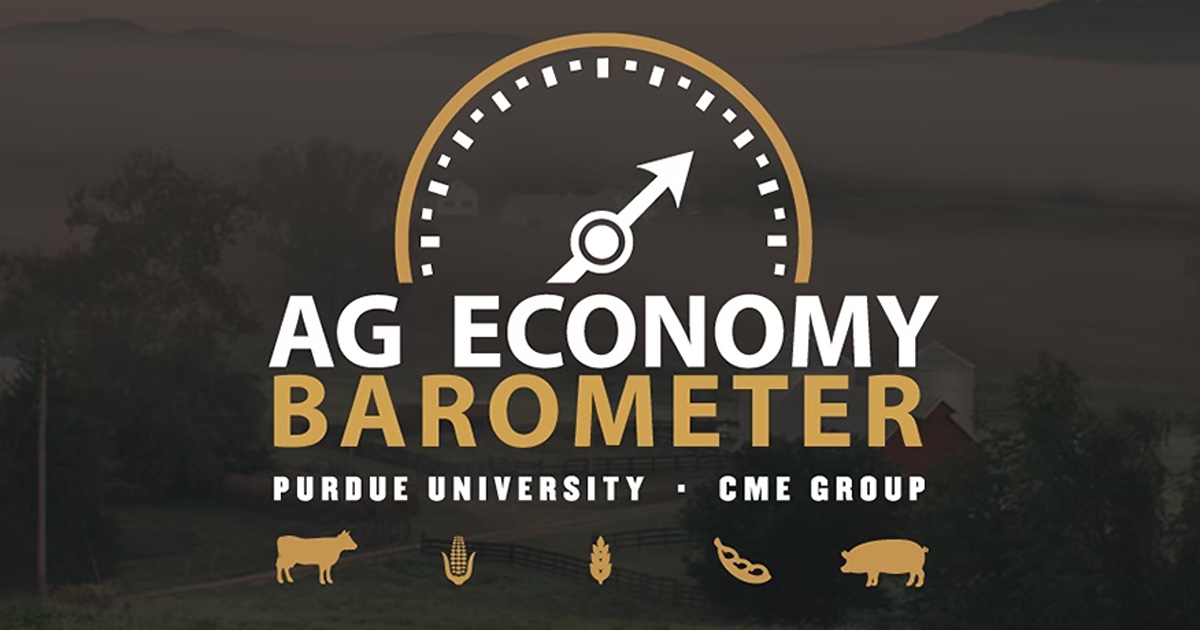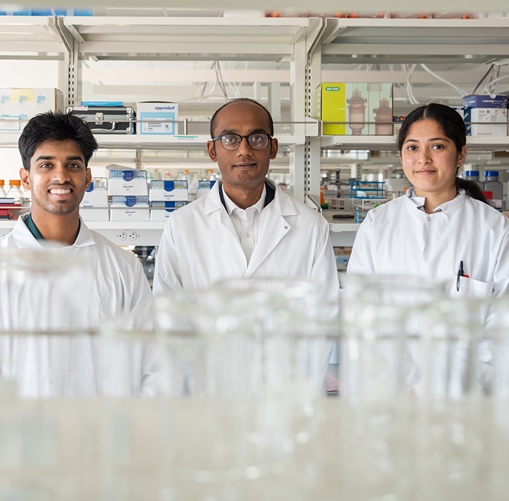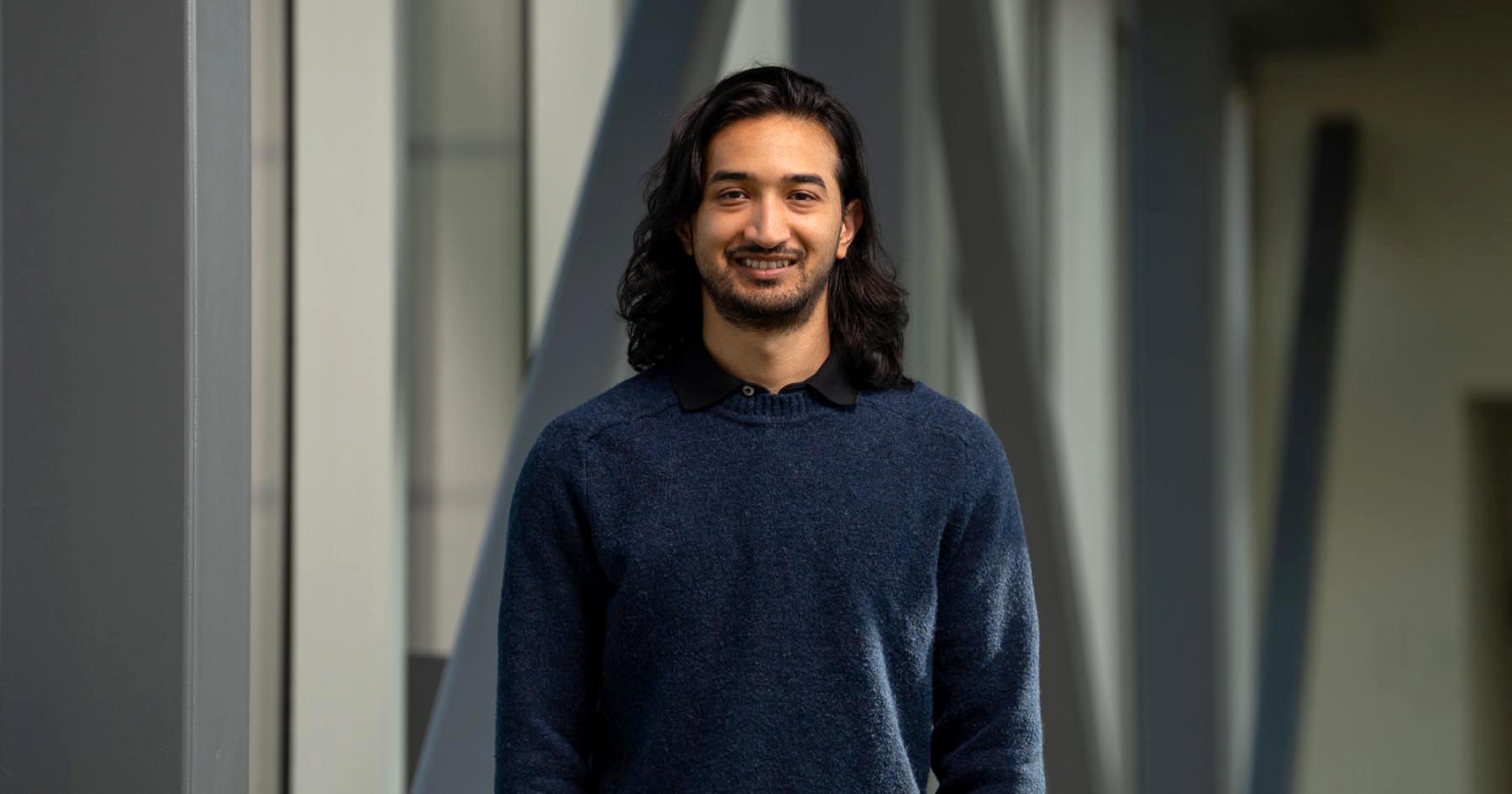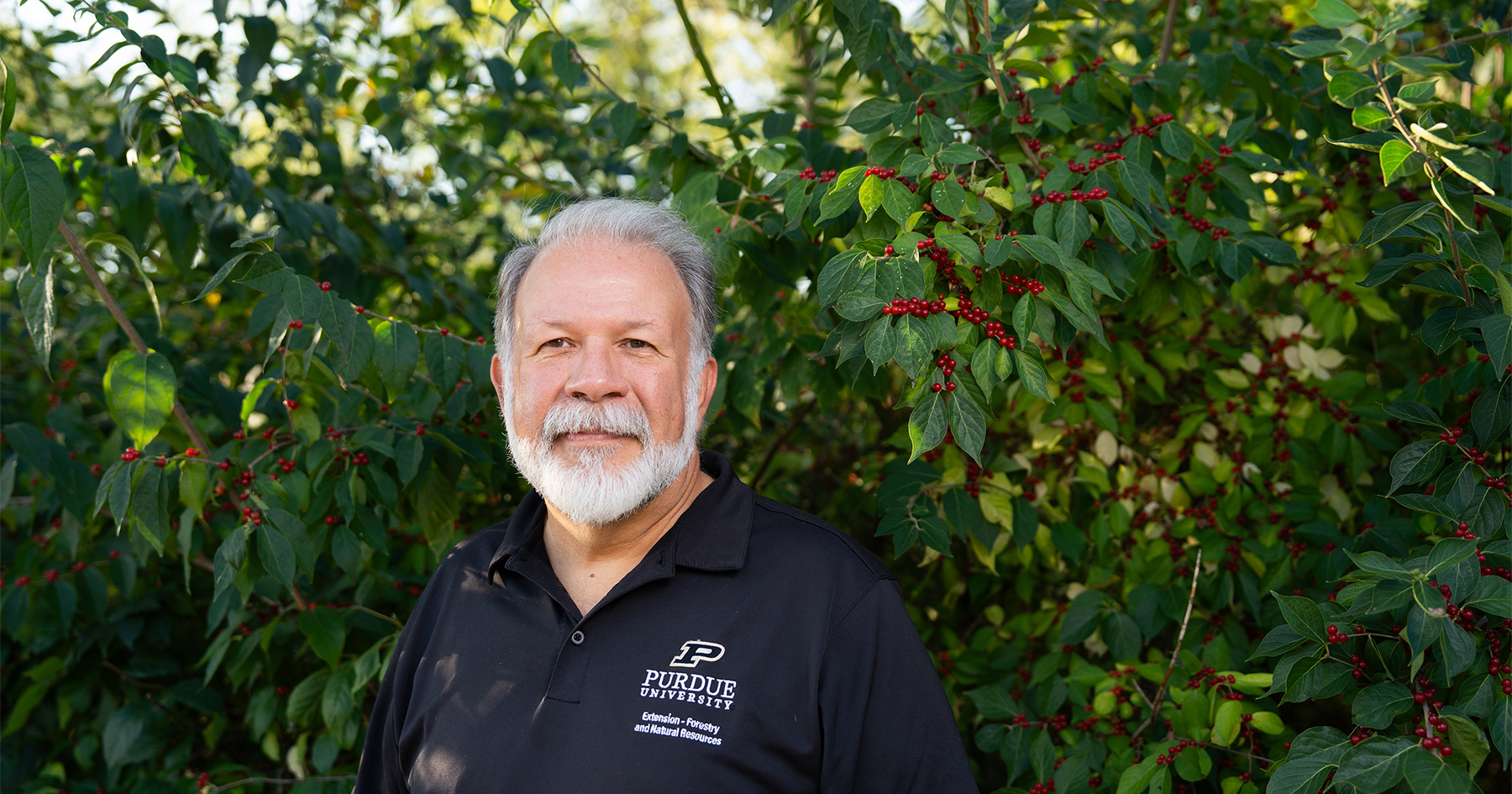Alumni Spotlight: Bret Marsh, DVM
Even though we're in the animal business, we're also in the people business. We've got great people here. Whether that's faculty, staff, students, I'm excited about our people, and I want to make sure I share that message out across the state.
- Bret Marsh, DVM
Bret Marsh earned his bachelor's degree in animal sciences from Purdue University in 1981, and his Doctor of Veterinary Medicine degree in 1984, also from Purdue. He is now the dean of the Purdue University College of Veterinary Medicine and Chief Executive Officer of the Purdue University Veterinary Hospital.
Marsh, a native of Boone County, Indiana, said he found his passion for veterinary medicine during his freshman year of high school through working at a veterinary practice in Lebanon, Indiana. He always enjoyed working with animals, but working at the clinic solidified his decision to become a veterinarian. He credits Dr. Russell Hardin, a graduate of Kansas State University, for being his mentor during this time.
“I had an opportunity to see all aspects of the practice in that mixed animal practice in Lebanon, and I think it also was important that I saw the respect that was shown toward the veterinary medical profession by clients and people in the community,” Marsh said. “Veterinarians were and still are regarded as leaders in communities. I wanted to continue to support that and be a part of that as well.”
Marsh looked to his mentors during challenging times in his life and emphasized the importance of having a mentor.
“I think one of the important pieces is your network and having a support structure because there will be challenges whether they involve a classmate, a colleague, a family member, a friend at home ─ whatever those might be ─ there will be bumpy spots along the way for all of us,” Marsh said.
Marsh believes that while much of the conversation around mentorship focuses on younger individuals being mentored, the value of seeking mentors extends far beyond that. He continues to seek guidance from mentors even today, viewing mentorship as an ongoing, lifelong learning experience throughout his career.
Marsh took his first step toward a veterinary medicine career by enrolling in the Purdue Animal Sciences Department. As an undergraduate student attending Purdue, he was an officer in the pre-veterinary club, where he established connections with classmates who were also planning to attend veterinary school.
“I had a great experience coming to Purdue,” Marsh said. “I had good academic counselors and professors that got me started with the goal of getting into the veterinary program.”
According to Marsh, he learned what “grit” is during his time as an undergraduate student at Purdue.
“It's perseverance and passion,” Marsh said. “You have to want to do it. You have to have that desire and keep persisting. I think those are the things that I learned early on when I came to Purdue. If you want those experiences, whatever it is you choose, you're in control, and you have those opportunities. Purdue provides unique and special opportunities to all kinds of students across our campus, and animal sciences has provided that opportunity for me.”
Marsh developed a strong understanding of the tasks at hand, while also honing his communication and prioritization skills during his Purdue studies.
At the time, students typically only enrolled in veterinary colleges that were in their home state, so Marsh applied to and attended the Purdue College of Veterinary Medicine. Marsh said that being accepted into the program was his biggest accomplishment during his studies.
Although Purdue’s veterinary program was the only option for Marsh, he said he would have attended the school regardless.
“Purdue, for me, is home,” Marsh said. “I mean, my family's been in Indiana since 1832, and when I decided to become a veterinarian and a first-generation college student, I came to Purdue. I wouldn't change a thing. I enjoyed animal sciences. I enjoyed the College of Agriculture. I enjoyed my time in the College of Veterinary Medicine and the experiences I gained here. The veterinary profession has been very good to me, and it's my time to give back.”
According to Marsh, he set out to differentiate his veterinary school application by working at a summer position on a cattle ranch in the sandhills of Nebraska. He did brandings and pasture work as well as breeding heifers. He encourages students to acquire practical work experiences in such settings before applying to veterinary school.
Marsh also said students should pay attention to the prerequisites before applying to a veterinary program.
“Unfortunately, we have students that apply but don't get considered because they haven't met the minimum requirements for coursework,” Marsh said. “Whether you're here at Purdue or elsewhere, wherever you might be completing your pre veterinary work, make sure you've met those requirements and do the best you can in those courses because the GPA is an important consideration on that application.”
Marsh also shared that current students enrolled in Purdue’s veterinary program should find time for themselves by doing things they enjoy and spending time with classmates and colleagues.
“Get to know your colleagues here, whether it's the professors or your classmates or upperclassmen, just so you have that experience,” Marsh said. “I still have communications with veterinarians that were going to college at the same time I did here. Those linkages are extremely important once you continue to network after you finish the professional program here.”
After Marsh received his DVM degree, he joined the Indiana State Department of Health in its meat inspection program. He then accepted a position with the Indiana Board of Animal Health, where he was eventually appointed as the state veterinarian. He remained in that position for over 30 years.
As the Indiana State Veterinarian, Marsh was responsible for all of the animal health programs statewide. He said that the most rewarding part of his job was improving the health and welfare of animals.
“I was always proud of the team, the team at the Board of Animal Health and all the interfaces that the agency had with veterinarians, producers, market operators, extension, educators and so many partners across the state, so we could be successful on all those fronts,” Marsh said.
On November 4, Marsh assumed dual leadership roles, joining the College of Veterinary Medicine as Dean and serving as the Chief Executive Officer of the Purdue Veterinary Hospital. His plans for the college and hospital are to exceed the public’s expectations.
“I think it's important in this role to take the experiences I had working with all those partners across the state and all the practitioners and animal owners across the state and making sure that our college is meeting their expectations,” Marsh said. “As a part of the land grant mission at Purdue University, we want to make sure we're meeting the expectations of our constituents across the state, and of course, Purdue's reach is well beyond the state of Indiana. Its reach extends across the country and around the globe. So, it's important for me to understand that interface and where we might have areas for improvement.
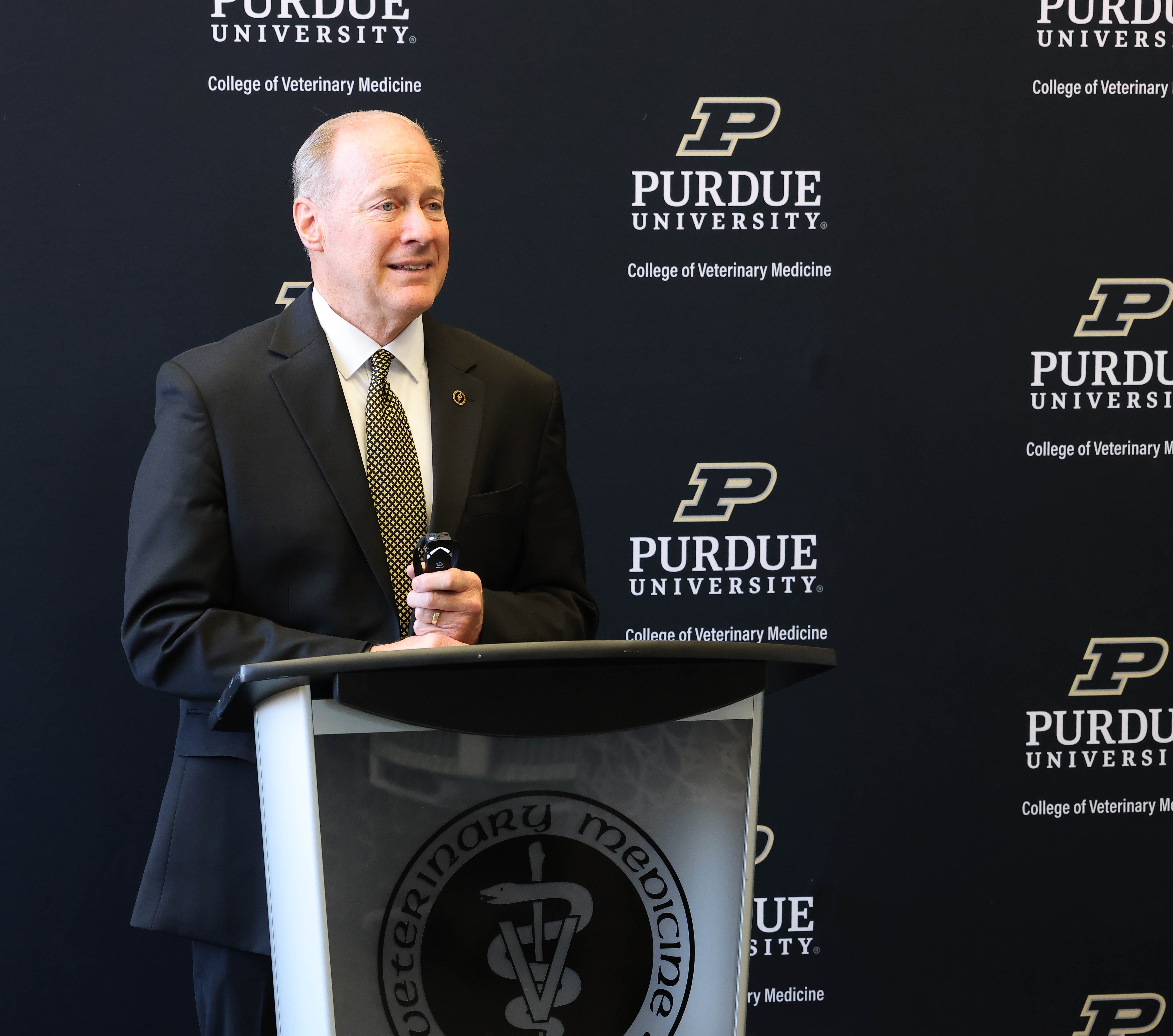 Bret Marsh, DVM, at a welcome reception honoring him as the new dean of the Purdue College of Veterinary Medicine.
Bret Marsh, DVM, at a welcome reception honoring him as the new dean of the Purdue College of Veterinary Medicine. Marsh mentioned that he is excited to assume this new role.
“Our next decade will be our college's finest, and I think there are a number of things that are happening now, both at Purdue and across our state and country, whether it's the One Health Initiative, our research initiatives, or our teaching and education responsibilities ─ I think there are unique opportunities for us now that may not exist in any other decade,” Marsh said. “This is our decade.”
Although Marsh is in a demanding field, he still finds time for himself. He enjoys doing yard work, attending concerts and Purdue sports games and just talking with veterinary colleagues.

